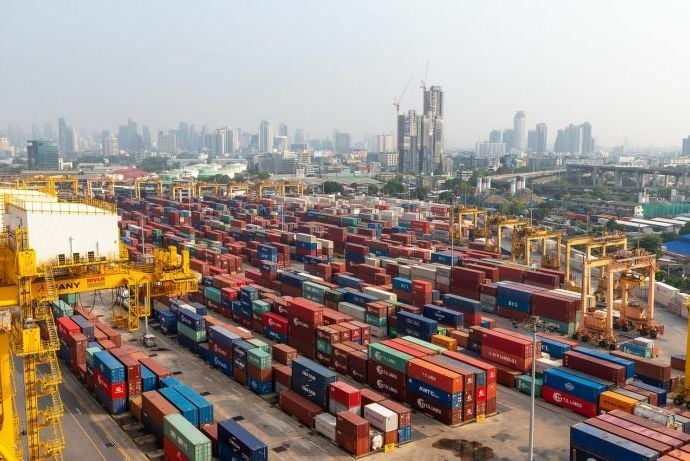Thailand to impose VAT on all imported goods from July onwards

Thailand’s Ministry of Finance announced the collection of value-added tax (VAT) on imported goods, which aims to address disparities between foreign and domestic sellers in terms of tax obligations, effective from July 5 to December 31, 2024.
The Royal Thai Government Gazette published the Ministry of Finance’s declaration today, June 24. The declaration focuses on customs duty exemptions for items valued at 1,500 baht or less, aiming to create a fairer marketplace for consumers.
The government’s policy seeks to resolve the unfair competition between foreign sellers, who are not subjected to VAT, and local sellers, who must pay this tax. This measure is also in line with international agreements that mandate a minimum value threshold for imported goods to justify customs duties.
The declaration, based on Section 12 of the Customs Tariff Act of 1987, was approved by the Cabinet on June 4 and addresses three main areas.
Firstly, the declaration exempts customs duties for imported items with a total cost, including shipping and insurance (CIF), exceeding one baht but not surpassing 1,500 baht. Secondly, importers must comply with the procedures set by the Director-General of the Customs Department. Lastly, this announcement will take effect 15 days after its publication in the Royal Thai Government Gazette and will remain valid until December 31, 2024.
Initially, the Customs Department will handle the VAT collection for imported goods valued below 1,500 baht and will forward it to the Revenue Department. This is similar to the current process for goods priced above 1,500 baht.
In the future, the Revenue Department plans to amend the Revenue Code and engage with online retail platform operators. The goal is for these platforms to directly collect VAT and remit it to the Revenue Department, reported KhaoSod.
By ensuring that all sellers, regardless of their location, adhere to the same tax obligations, the government hopes to foster a more equitable marketplace. Additionally, the revenue generated from this tax will contribute to the national budget, supporting various public services and infrastructure projects.
For importers, this means adhering to stricter customs procedures and ensuring compliance to avoid penalties. For consumers, the change may result in slightly higher prices for imported goods, as the added tax will likely be passed on to them.
Latest Thailand News
Follow The Thaiger on Google News:


























